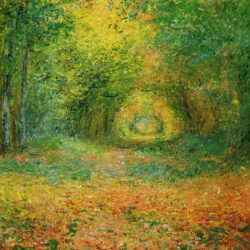Contributor(s): Shared on: Categories: Tags: | Contribute a translation | Source (English) |
|---|
|
Blessed HaMavdil, the Divider of Time: For separating the whole into increments
that we may comprehend it,
we are thankful. | |
Blessed Adonai Eḥad, the Uniter Of All Existence: For connecting us
that we may be one,
we are thankful. | |
Blessed Ain Sof, That Which Cannot Be Known: For providing us with so many interesting questions,
we are thankful. | |
Blessed Ruaḥ ha-Olam, The Breath That Animates: For giving us teachers that we may learn,
we are thankful. | |
Blessed One Who Spoke
and created the world: For this ḥallah,
and the portion of dough we take off before we bake it
in order to sustain high priests, artists and those who are in need,
we are thankful. | |
Blessed Shekhinah, the Soul of Eternity,
in whose spirit we create: For the guidance and joy and music and knowledge
that our clergy give to us,
we are thankful. | |
Blessed Elohim, God of our ancestors
who embodies the chain of work: For the seed
and the farmer
and the picker
and the miller
and the baker
and the trucker
and the store owner
and the shopper,
who brought us this ḥallah
that we bless together,
we are thankful. | |
Blessed Yah, God of our future
who is embodied by the chain of love: For the parents
and the family
and the partners
and the friends
and the teachers
and the ḥevruta
and the congregations who brought us to this moment
that we may eat together,
we are thankful. |
בָּרוּךְ אַתָּה
יְהֹוָה אֱלֹהֵֽינוּ
מֶֽלֶךְ הָעוֹלָם
הַמוֹצִיא לֶֽחֶם מִן הָאֲרֶץ׃
|
(sing)
Barukh atah
Adonai Eloheinu
melekh ha-Olam,
hamotsi leḥem min ha’arets. |
Trisha Arlin shares “Motzi”, a kavvanah (intention) for the blessing, Hamotsi Leḥem Min Ha’aretz, over ḥallah. Describing the kavvanah she writes that it’s based on Rabbi Ellen Lippmann’s tradition on having us create a chain of touch around room that leads to and from the ḥallah, which she then explains as both exemplifying the connection created when people eat together and the chain of work that went to creating the ḥallah itself. A less generic version of this motzi was written for the service recently held in honor of the ordination of Cantor Lisa B. Segal and Rabbi Molly Kane.
 Trisha Arlin is a liturgist, teacher, performer and student of prayer in Brooklyn, NY and was a part-time rabbinic student at the Academy of Jewish Religion (AJR), 2012-18. Trisha was the Liturgist-In-Residence during the National Havurah Committee’s 2014 Summer Institute, has served as Scholar or Artist In Residence at many synagogues where she has read, led services and taught her class, Writing Prayer. since the pandemic began, Trisha has been on Zoom teaching prayer writing, sharing her liturgy and doing readings with Ritualwell, Haggadot.com, for synagogues around the country as well as small freelance groups. She is a founding builder of Bayit’s Liturgical Arts project. Trisha received a BA in Theater from Antioch College in 1975 and MFA in Film (Screenwriting) in 1997 from Columbia University. In 2009/2010, Trisha was an Arts Fellow at the Drisha Institute. In 2011, she graduated from the sixth cohort of the Davennen Leadership Training Institute (DLTI). A longtime member of Kolot Chayeinu/Voices of our Lives, a progressive unaffiliated congregation in Brooklyn NY, Trisha’s liturgy has been used at services and ritual occasions and in newsletter there and at venues of many denominations around the world. Her work has been published in her book, Place Yourself: Words of Poetry and Intention (a collection of liturgy and kavannot. Foreword by Rabbi Jill Hammer, Artwork by Mike Cockrill. 2019 Dimus Parrhesia Press); the Journal of Feminist Studies in Religion; Seder Tefillot, Forms of Prayer: Prayers for the High Holydays (Movement for Reform Judaism); B’chol Levavecha (CCAR Press); Beside Still Waters: A Journey of Comfort and Renewal (Bayit & Ben Yehuda Press); A Poet’s Siddur (Ain’t Got No Press); Studies in Judaism and Pluralism (Ben Yehuda Press) and can be found online at TrishaArlin.com, at RitualWell, and of course, the Open Siddur Project. You can support her work by buying her book, making a one time donation through PayPal @trishaarlin or monthly support via Patreon. Read a comment / Leave a comment (moderated) Works of related interest: |











Leave a Reply